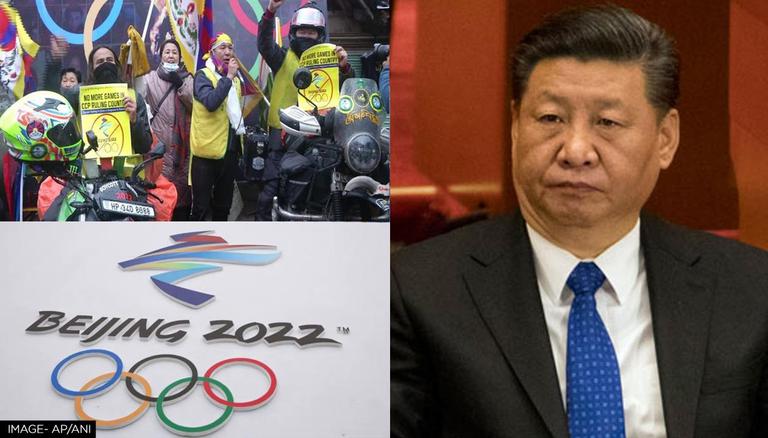Rising number of Covid-19 cases adds to Beijing Olympics’ troubles
The Winter Olympics is just a few weeks ahead. But there is a lot of fear and uncertainty in the air. Despite the enforcement of the ‘Zero Covid’ policy, China is witnessing viral breakouts and subsequent lockdowns on a large scale. This casts a pall on the Beijing Olympics, which is already marred by diplomatic boycotts and environmental concerns. Xi’an, Tianjin, Shenzhen, Zhengzhou, Anyang, Yuzhou are among the major cities in China where Covid-19 is spreading at an alarming rate. Now, China has dropped ‘Zero Covid’ policy and pursued ‘dynamic clearing’ of local outbreaks in order to assure the athletes from all over the world about their safety. However, China’s National Health Commission has cleared that it was unable “to prevent local cases from appearing”.
Chinese President Xi Jinping had visited the Olympics venue earlier this month asking for a “green, safe and simple” event as China intends to demonstrate its superiority in every aspect of life- be it technology, sports or ability to control Covid-19. However, things are turning rather grim and Beijing may end up red-faced, thanks to the fast-growing number of coronavirus infections. As many as 20 million people in China have been forced to stay in their homes as many cities go into complete lockdown.
There are high chances of majority populations getting strung by a new variant of coronavirus as the Chinese vaccines are turning useless. According to the epidemiological survey by Tianjin Municipal Agency, 76 of new 80 Covid-19 patients had completed their course of vaccination while 20 of them had even received booster dose.[3] Notwithstanding the Chinese government’s decision to bar foreigners to attend the Olympics event, the domestic population now is feared to be the bigger transmitter of the virus. Huang Chun, a Beijing Olympics official responsible for disease control, said “If the mass cluster transmission happens, it will impact the Games and the schedule for sure. The worst scenario, if it happens, is independent of man’s will, so we leave our options open.”
Now there are reports that Beijing may have underreported infections and death rate since the onset of Covid-19. In the backdrop of the basic information being kept hidden from the public, the recent reports of fast-rising Covid patients in China are certainly discomforting for over 3,000 international athletes and thousands of trainers. It would be very difficult to keep them isolated from coronavirus infection as the support staff and spectators will be Chinese people. A single case can spoil the entire event. “With the new variant being out and about, it’s definitely a little scary,” said Karen Chen, an American figure skater.
Another major concern is the availability of snow required for the majority of games in the Winter Olympics. A few weeks to go and there is still no snow. So the Winter Olympics will be completely dependent on the artificial snow. Manufacturing huge amount of artificial snow is environmentally unsustainable. The Alpine skiing event alone will require 1.2 million cubic meters of snow. Maintaining snow quality to meet strict requirements by the International Snow Federation can have a serious negative impact on the highly water-stressed area with little natural snow.
Moreover, human rights organisations have been demanding boycot of the Beijing Olympics over the human rights abuses in Xinjiang, Tibet, and Hong Kong. Some western countries including the US, UK, Canada, and Australia too have diplomatically boycotted the Beijing Olympics. Athletes too have expressed their anger. American ice dancer Evan Bates said “My answer could be applicable to human rights at large, but if you’re asking what’s happening in China regarding the Muslims, it’s terrible, it’s awful.” The Beijing Winter Olympics has remained controversial in the past few years. Now, the environmental concerns too added to it. However, coronavirus can be a big spoiler for the mega event if Chinese authorities fail to rein in the rising number of Covid-19 cases.













